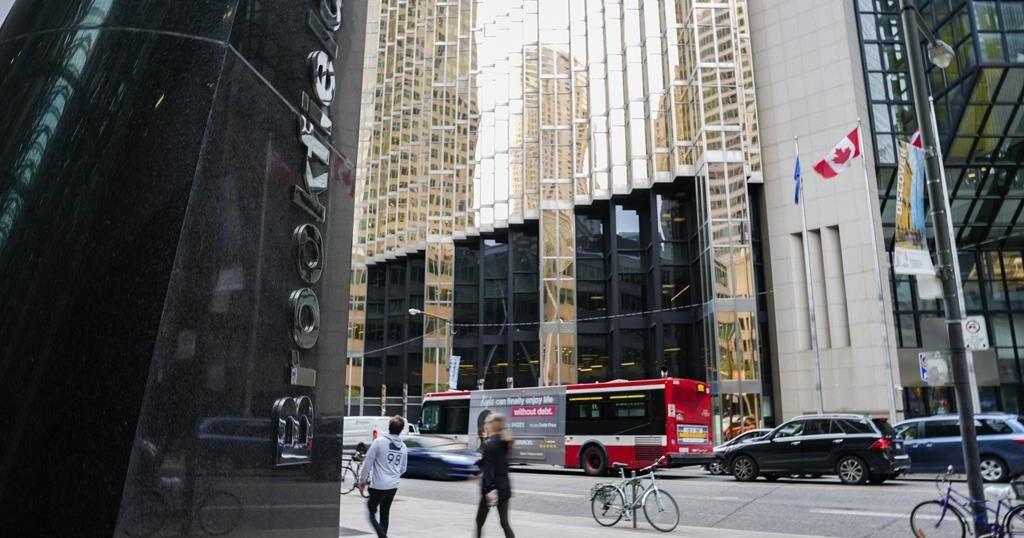(Bloomberg) — Boris Johnson promised to deliver “a transformative agenda of investment” ahead of the 2019 general election, insisting that his Conservative government could unleash Britain’s private sector and pave the way for a decade of prosperity.
The positive post-Brexit vision worked at the ballot box and won Johnson a thumping majority. Yet three years later, the economy has gone into reverse, a long recession is expected and businesses investment is 8.4% lower than when the former prime minister delivered his manifesto, according to data published Friday.
Meanwhile, the Tories are on to their third leader of the current parliamentary term, and fifth chancellor of the exchequer, as Britain’s finance minister is known.
Poor productivity and sluggish growth are nothing new, having plagued the UK economy since the 2008 financial crisis. Current Prime Minister Rishi Sunak blames low levels of investment, particularly from the private sector.
“We must put all our energies into three priorities: capital, people, ideas,” the then-Chancellor told a financial-industry audience at his Mais Lecture in February. “And if we can do that, then we can rejuvenate our national productivity.”
Progress since then has been scant. The government asked business groups for ideas on how to encourage capital spending, which flat-lined following the 2016 vote to leave the European Union.
But any sense of a plan was lost amid the summer’s political chaos in which Johnson was ousted from Downing Street and replaced by Liz Truss who only lasted seven weeks.
Truss’s government took charge in September and quickly announced plans for investment zones, parts of the country that would offer sweeping tax cuts and exemption from many regulations. Local authorities raced to submit their applications by an Oct. 14 deadline but six days later Truss resigned. The new government is set to abandon the project altogether.
‘Hugely Destabilizing’
“It’s hugely destabilizing,” says Kitty Ussher, chief economist at the Institute of Directors. “When businesses feel things are changing rapidly, it makes it even less likely they’ll want to commit their hard-earned profit to investments.”
Other business groups are unsure whether the zones were a good idea in the first place.
“Investment zones on top of free ports felt a bit odd,” Shevaun Haviland, director general of the British Chambers of Commerce, told Bloomberg News. Her main concern was “that rather than stimulating new growth, it just moves” investment away from other areas. The UK already has eight free ports which benefit from lower taxes and looser planning restrictions.
Business confidence has plummeted in recent months, according to BCC surveys of its members, with more bosses expecting profits to fall rather than rise. A snap poll last month following the government’s latest fiscal statement found that only 6% of companies said they would increase investment, while nearly four in 10 said they would cut it back.
Official figures Friday showed business investment fell 0.5% between July and September, the second quarterly decline this year.
Weak confidence puts even more pressure on the government to offer tax incentives and break a vicious cycle in which businesses don’t want to invest and the subsequent lack of growth makes everyone even more miserable.
Sunak brought in a “super-deduction” as chancellor, allowing firms to reduce their tax bill by 25 pence for every 1 pound they spend on qualifying plant and machinery. But with the policy due to expire next April, businesses are still waiting to discover if it will be extended or, if not, what will replace it.
While more details may come in Chancellor Jeremy Hunt‘s Autumn Statement next week, the scope for giveaways and tax allowances is limited by the huge hole in the public finances. Hunt is expected to announce tax rises and spending cuts amounting to £50 billion ($59 billion).
The Conservatives could, however, improve the situation simply by delivering stability. “I know there has been a cloud of uncertainty hanging over the British economy in recent years,” Sunak said in his February Mais Lecture. “But that cloud is lifting.”
Rather than lifting, the clouds darkened amid Tory infighting, a lengthy leadership contest, and Truss’s calamitous mini-budget in September that triggered market turmoil and a Bank of England intervention.
“There’s a cost-free solution for the government,” says IoD economist Ussher, who was a Treasury minister during her time as a Member of Parliament for the opposition Labour Party.
“Make sure there’s a basic hygiene of confidence — that’s been lost recently. Be slow, be steady. And realize these are real business people making real decisions.”
–With assistance from Sabah Meddings.
Source link
Related
























